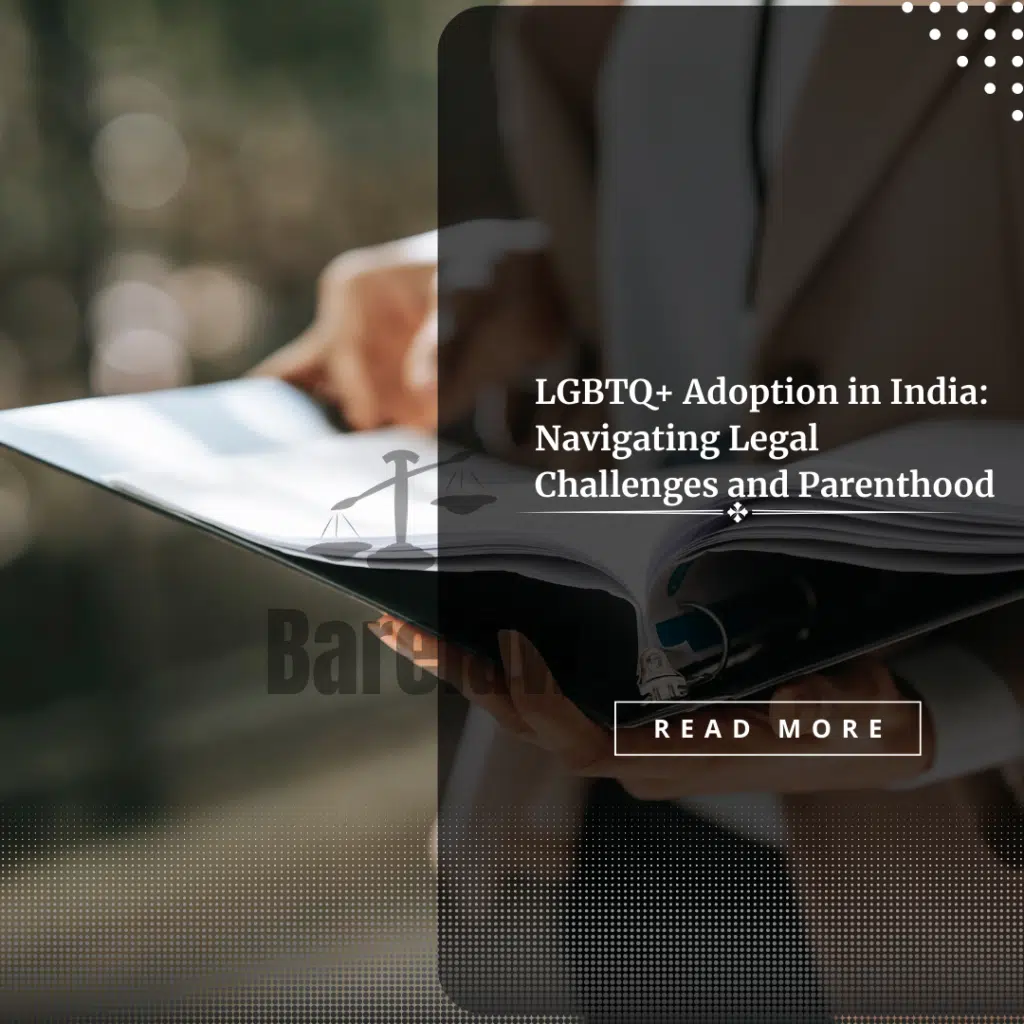
Table of Contents
LGBTQ+ Adoption in India: Navigating Legal Challenges and Parenthood
LGBTQ+ Adoption in India: Navigating Legal Challenges and Parenthood
Introduction
The LGBTQ+ community’s desire to adopt children has been gaining attention as societies become more inclusive across the globe. In India, which has a complicated legal system, members of the LGBTQ+ community encounter particular challenges and considerations when it comes to adopting and raising kids. This paper looks at some of the legal complexities that they may face as well as what those hurdles could mean for adoption rights among LGBTQ+ people in India.
The Legal Landscape
India has taken great strides toward recognizing LGBTQ+ rights. The 2018 historical moment when homosexuality was decriminalized through the Section 377 judgement marks one such stride. Although this was considered progressive by many, there still exists ambiguity within Indian laws regarding adoption and parenting for individuals or couples identifying themselves as part of this community.
Eligibility and Adoption Process
Requirements for eligibility often depend on interpretation especially if you are an LGBT person or same-sex couple wanting to adopt in India. Many adoption agencies still have conservative views about families which can make it difficult for gay parents to be considered suitable. The law is vague in several areas thereby making application inconsistent hence adding onto already existing anxiety among prospective foster parents from sexual minority groups.
Marital Status and Adoption
It should be noted that marital status plays a significant role during proceedings related with child adoption. In this regard, single people can adopt but same sex marriages are not always recognized by all states within the country thus affecting eligibility too. While some courts have granted joint adoptions by gay couples other judges fear lack of specific laws might hinder such decisions hence creating confusion among different regions where these unions occur legally among LGBT persons.
Biological vs. Non-Biological Parents
When same sex partners who are married opt for assisted reproductive technology (ART) children may be born using these methods questions around legal parenthood arise more so if one parent is biological while another not so much (non-bio). For instance, non-biological mothers may have difficulties asserting their rights over children born through ART procedures in cases of separations or disagreements since there is no clear legal recognition leading to custody battles and heightened emotional distress among such families.
Discrimination and Stigma
Even though the law has improved somewhat, there are still many negative attitudes towards LGBTQ+ adoption. These prejudices may be shown in adoption agency decisions or court rulings. Adoption agencies or courts might not want to place children with LBGTQ+ people because they fear that the kids will face bullying or other forms of discrimination.
Child’s Best Interest
The most important factor when making adoption decisions is what is best for the child involved. Courts and adoption agencies must ensure that a kid grows up in a safe and loving environment which promotes their overall welfare. However, sometimes judges may have biased opinions about whether such environments can be provided by gay parents thereby leading to increased scrutiny as well as additional barriers being put before them during this process.
Legal Advocacy and Awareness
Efforts are being made to challenge discriminatory practices in adoptions so as promote equal rights for all parents regardless of their sexual orientation or gender identity (SOGI). Legal organizations advocate on behalf of individuals who want to adopt but face obstacles due to societal norms around same-sex relationships among others while also raising consciousness within communities whose members might not otherwise know much about this issue affecting lives near them directly if at all.
The Role of International Precedents
India’s legal system could be affected by international laws on gays adopting children as well as attitudes towards it globally continue evolving. When countries like those in Europe were busy coming up with laws allowing same sex couples adopt children our own leaders may take note through this opening up debate among themselves hence amending some existing policies concerning these matters too.
Conclusion
For lesbian, gay, bi-sexual transgender queer plus (LGBTQ+) persons desiring parenthood through adoption within India’s borders; many hurdles abound owing mainly but not exclusively from legal uncertainties combined with social prejudices that hinder successful realization of self-actualization dreams fostered by raising kids countrywide .
This notwithstanding however; there have been significant strides made towards achieving equal rights within legal frameworks surrounding such issues so far still there lie numerous challenges not limited to lack of transparency during the process leading some people feeling left alone outside looking in. Advocacy groups need continue enlightening masses about these barriers while at same time fighting against them since all deserve love care protection and opportunity for growth into responsible citizens regardless their sexual orientations identity



